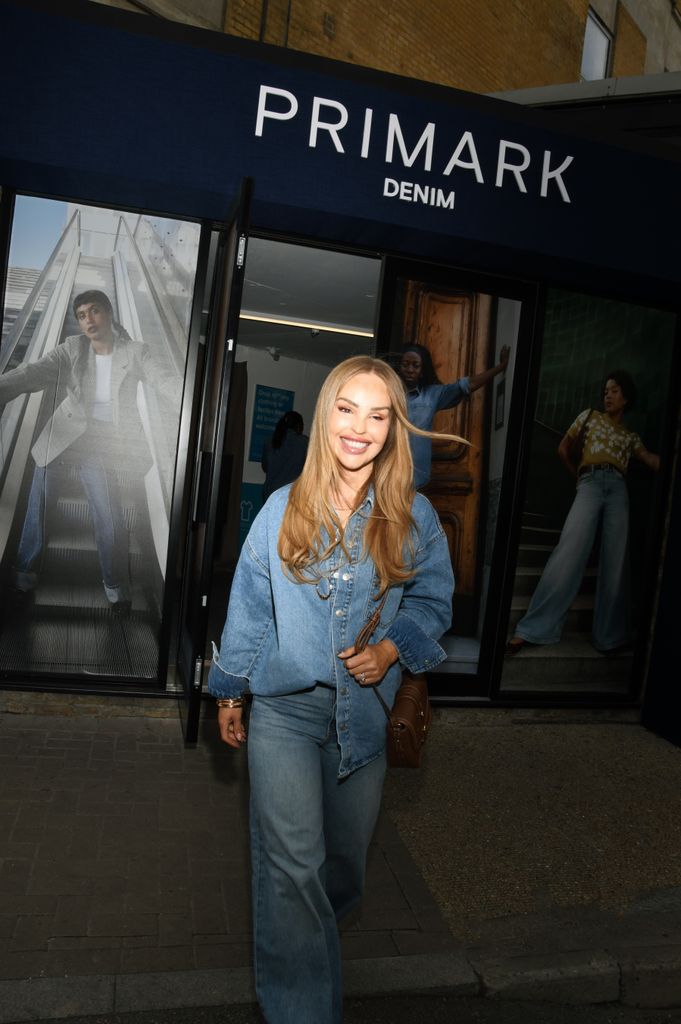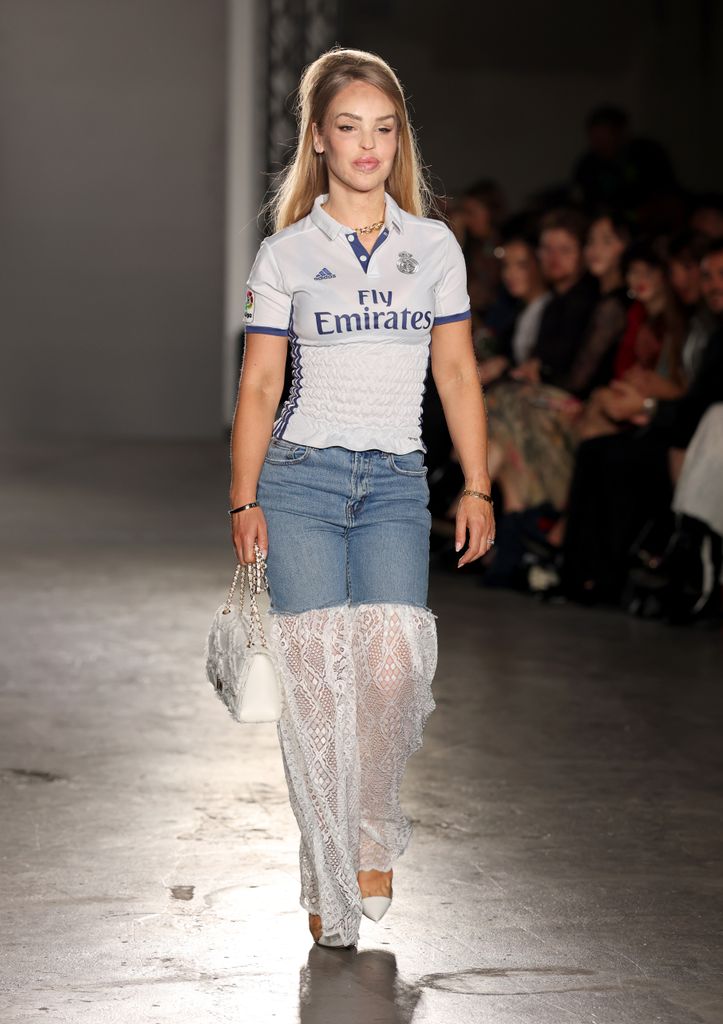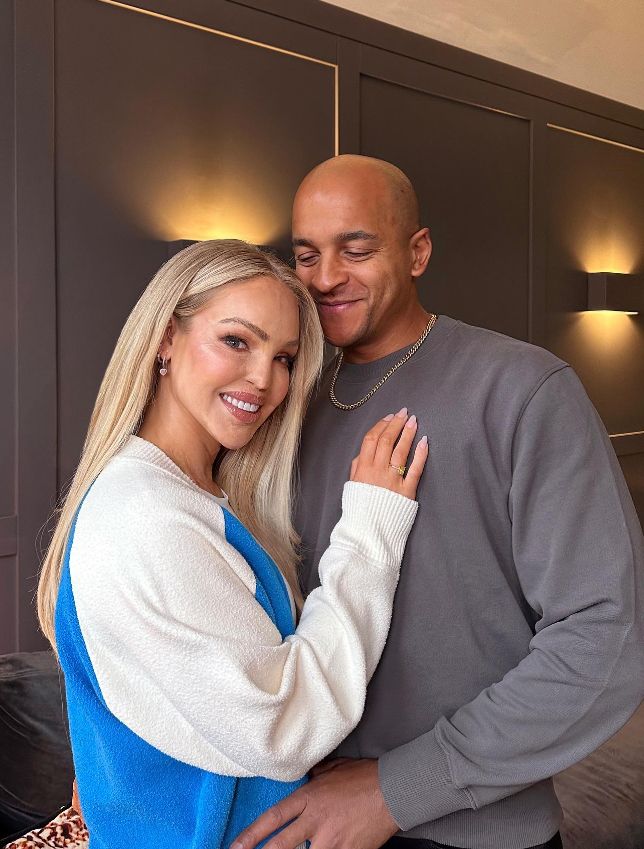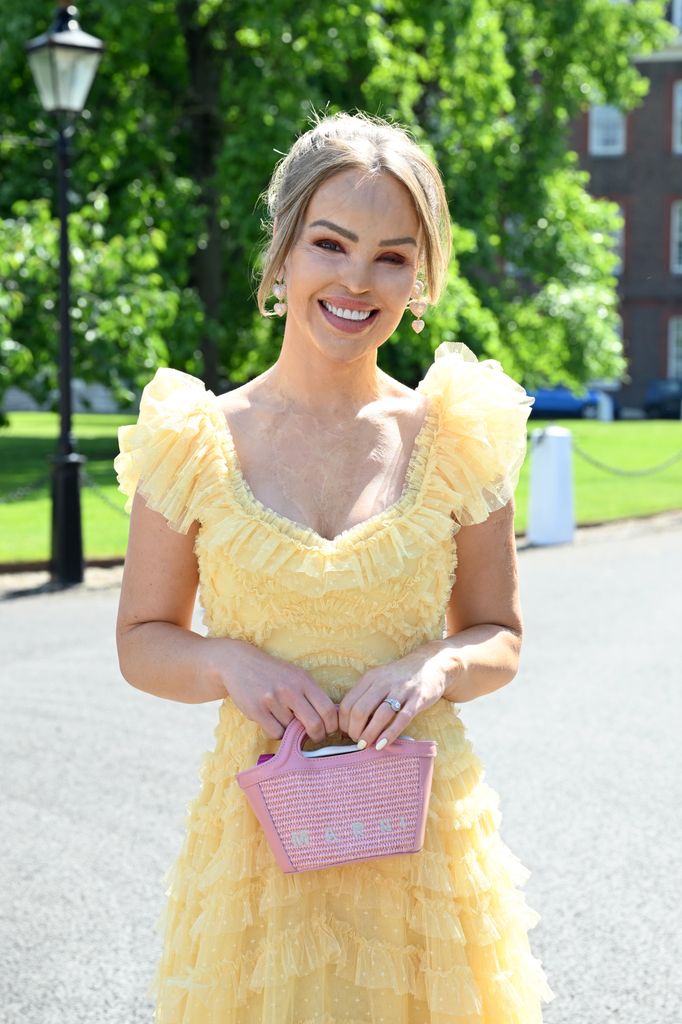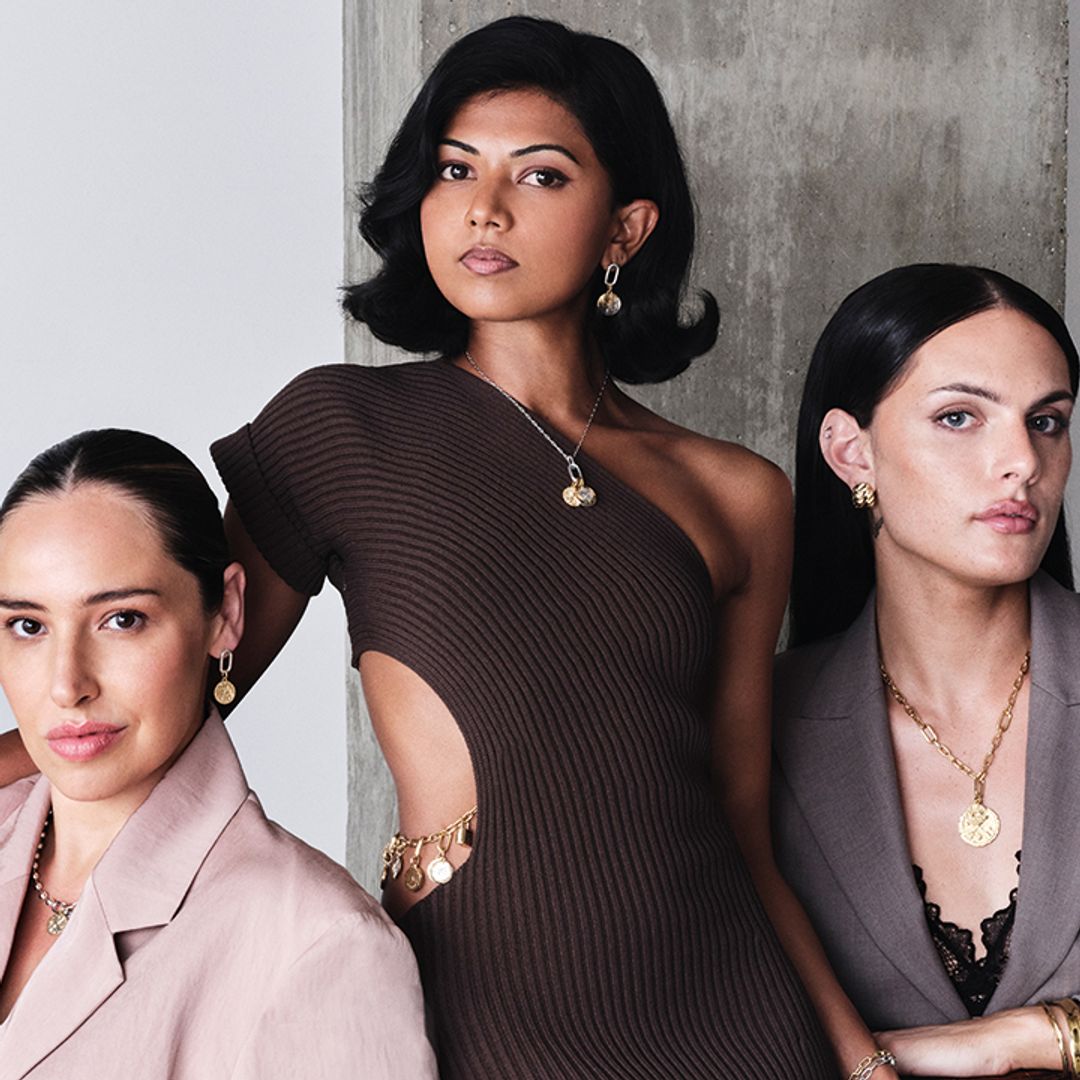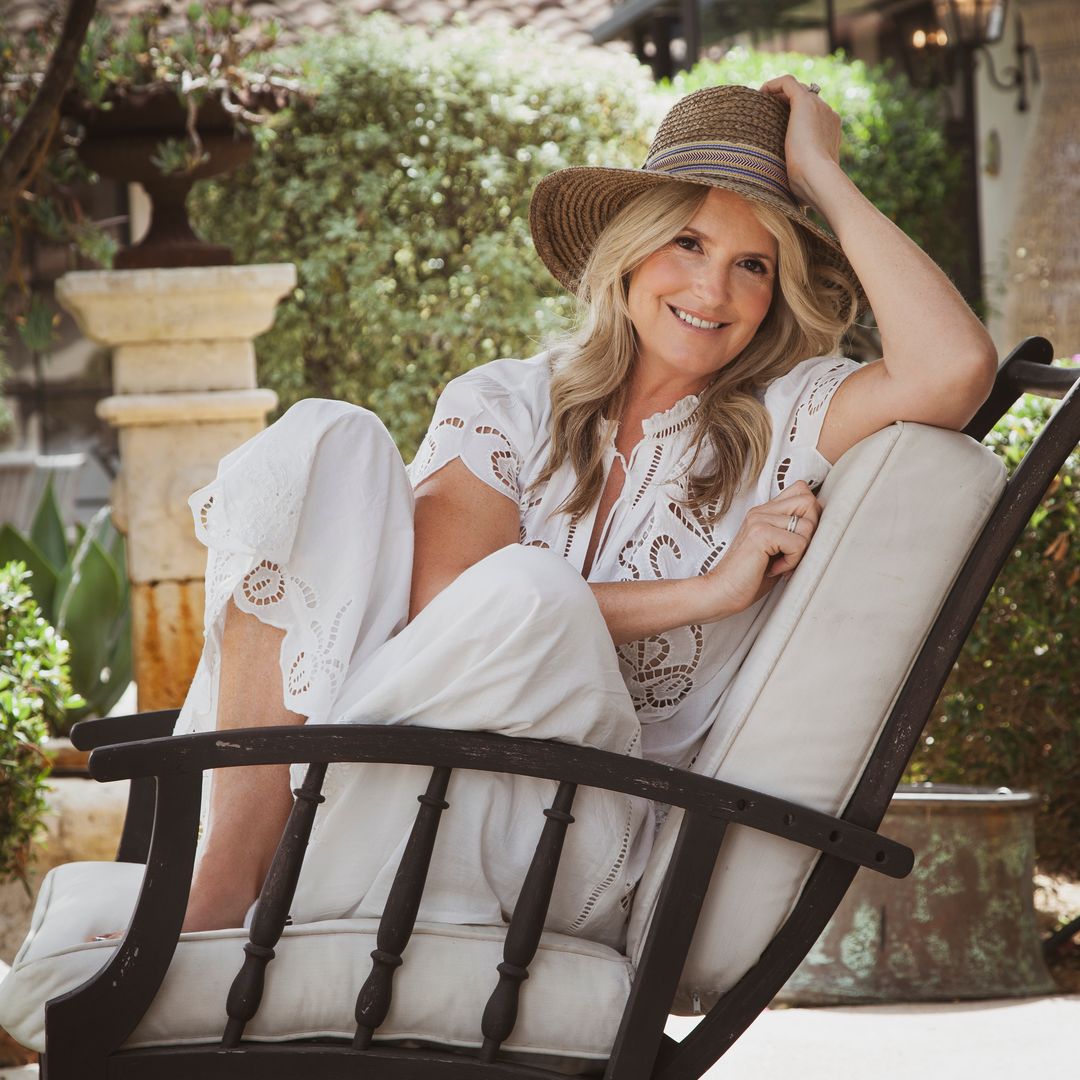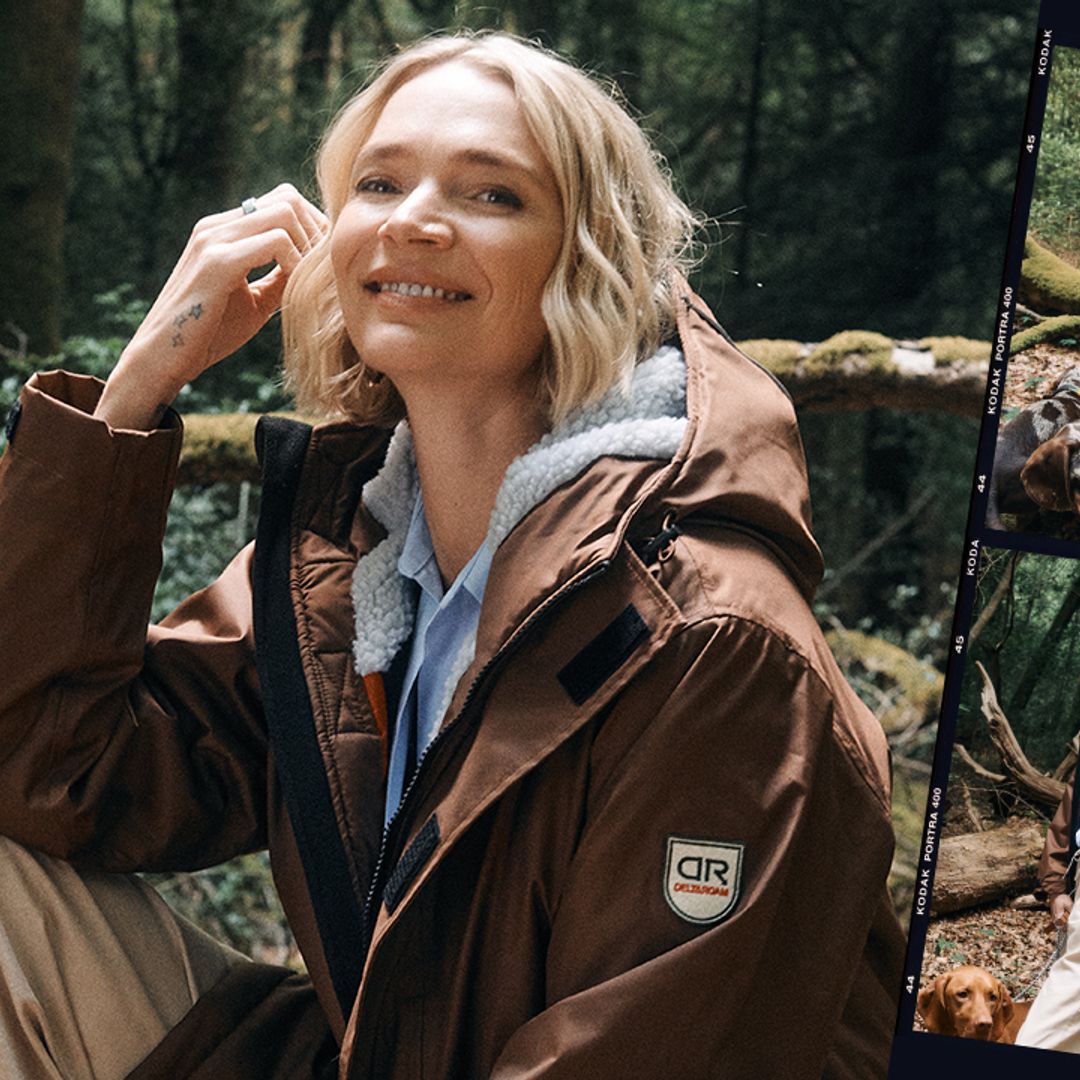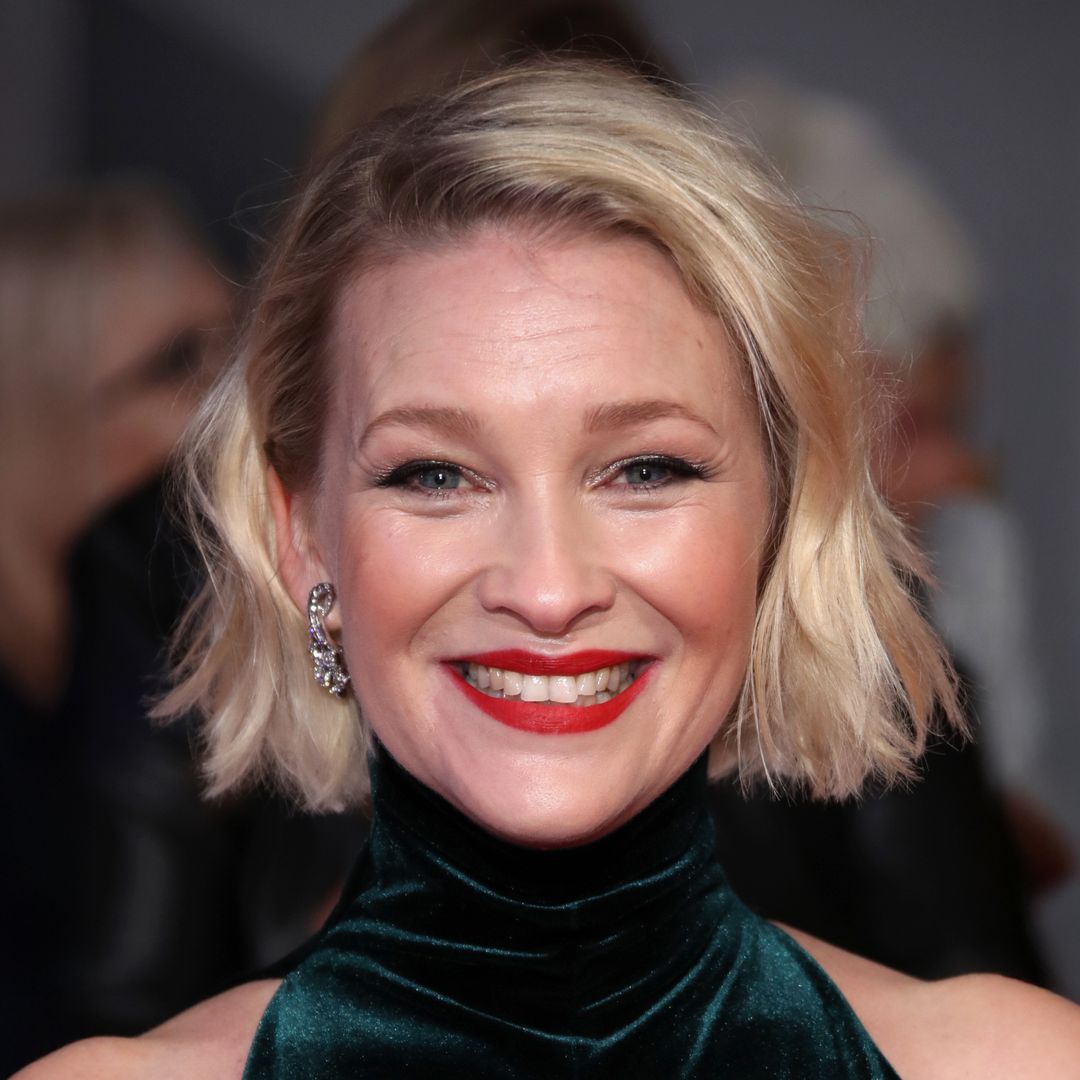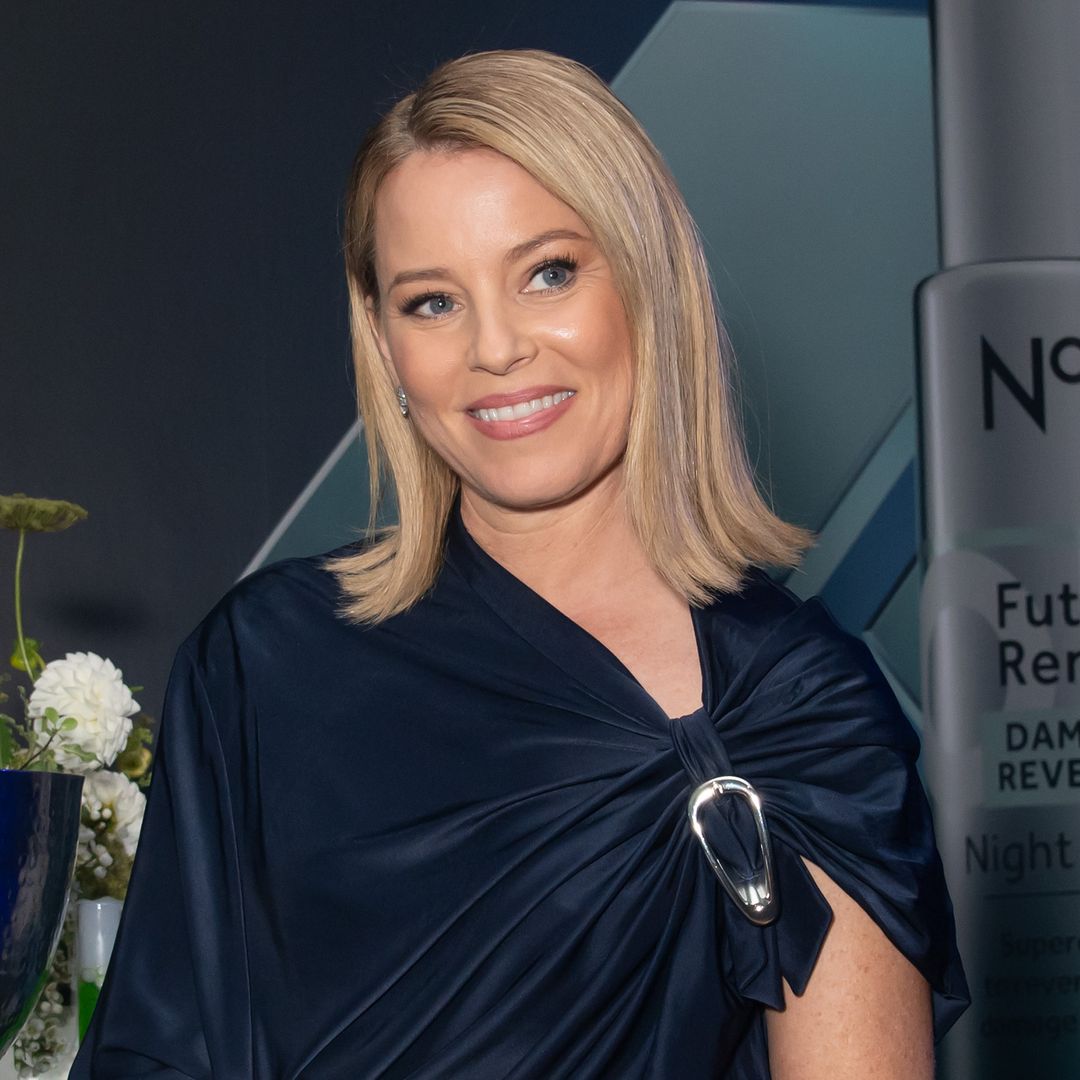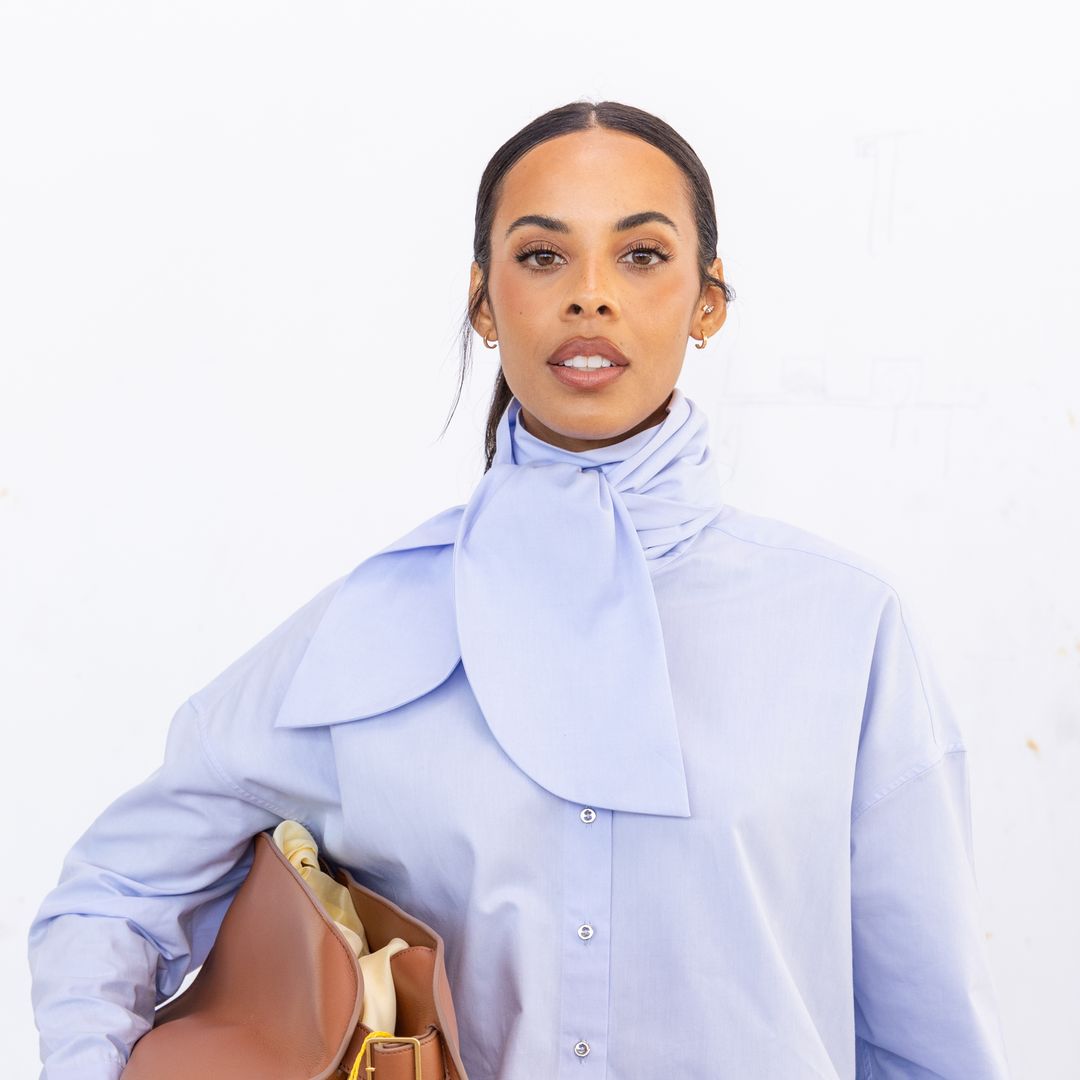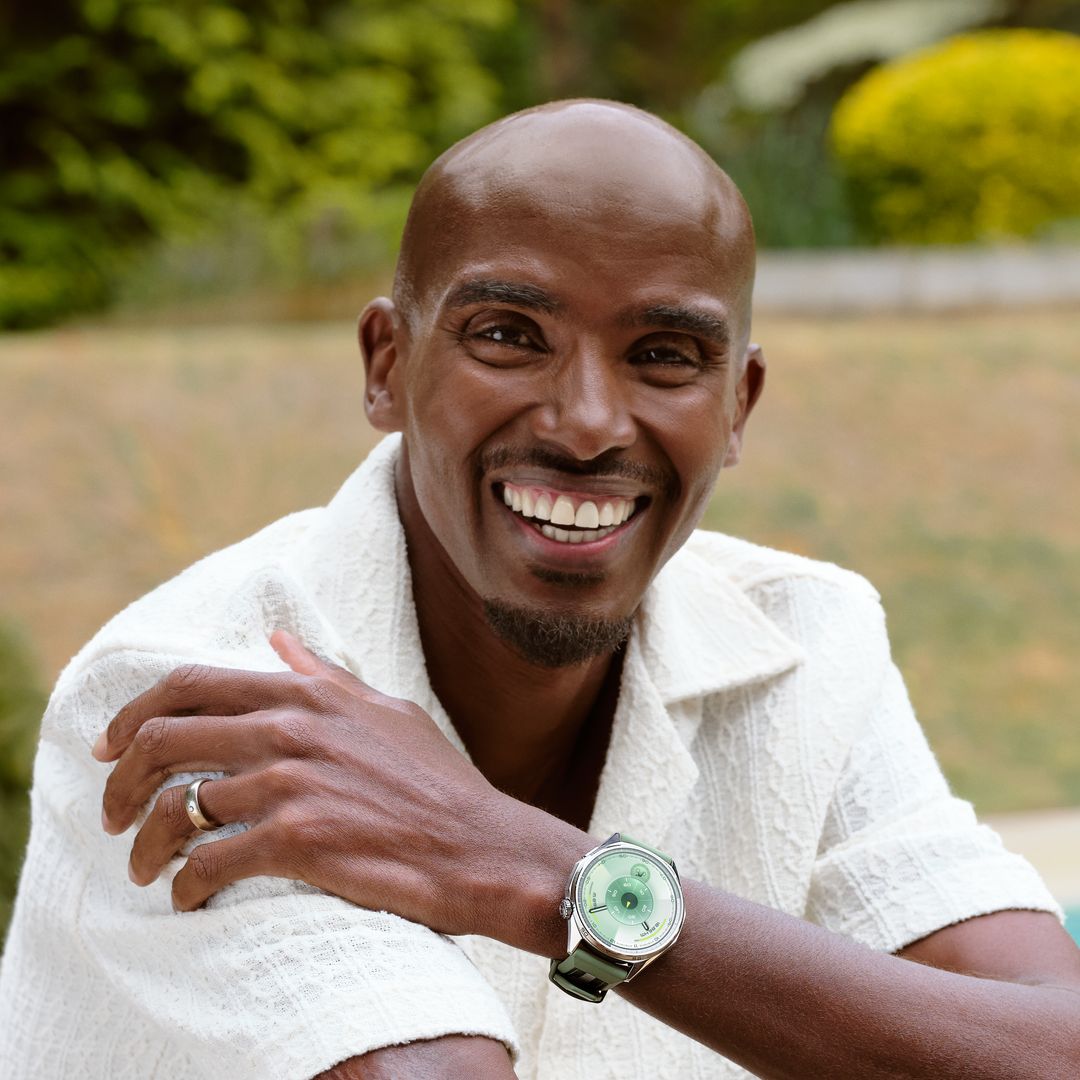Katie Piper is synonymous with confidence. The 41-year-old writer, activist and television presenter has become one of the most powerful voices in the UK media landscape, but the Loose Women star readily admits this wasn't always the case. During an inspiring Primark panel talk attended by HELLO!, the former model opened up about having her confidence shattered after becoming a burn victim aged 24. The presenter also discussed her long journey to rebuild her life, offering insights into resilience, self-belief, and the tools that helped her find herself again.
The busy mother-of-two helped unveil the high street giant's new In Denim We Can campaign, which focuses on creating more sustainable and durable denim. She believes clothing can have a profound impact on confidence and describes fashion as a form of communication and self-expression, and even a subtle tool to claim back control. We sat down with Katie to hear what confidence means to her, as well as practical ways to cultivate it...
Pressure to find your 'why'
In August 2018, Katie was targeted by her ex-boyfriend in a violent acid attack, causing major facial damage and blindness in one eye. She has since become a fierce advocate for women's rights, taking part in several Channel 4 documentaries and setting up the Katie Piper Foundation to help victims of burns and other disfigurement injuries. Despite her drive and purpose being clear, she admits the pressure of "finding your why" can be tough, and doesn't look the same for everyone. Maybe it's the dream job you didn't get, the partner you don't have, or that you just feel that you should be further on in life, given your age. "Nobody ever found their 'why’ on a mediocre day. If you're battling something, if you're doubting yourself in some way, that's when you'll find it. It's a bit of a cliché, but the darkness always leads you to the light," she tells us.
Confidence, the need for community and little wins
Katie reveals one of her keys to confidence: remembering that it ebbs and flows. She firmly believes that people shouldn't put themselves in a box; it's not about being shy or confident. "Confidence is a transient thing," she says. "It's not like a fixed place that you earn and just pull up and live there - absolutely not." The ITV presenter opened up to us about some of her darkest times. "After I was attacked, it was probably one of my lowest points in terms of confidence, but not for obvious reasons that people understand. It wasn't rooted in beauty or like the surface level of looking different. It was about identity." When we introduce ourselves, we often follow up with 'What do you do for a living?', but Katie struggled with her loss of identity after losing her modelling gigs. "I had no job, I couldn't work; when you're young, you're sort of like fun, flirting, clubbing, having fun." She admitted feeling like she didn't fit in or relate to her peer group anymore. "I was isolated and not part of a community," she adds.
She reveals she rarely felt seen, which led to further feelings of isolation. "We need connection, we need to feel seen, we need to feel represented, when we don't, we can really become self-loathing because we feel like the only person going through what we are." But through all of this, she found her way out of the darkness. How? Building confidence starts by celebrating little wins. Even the smallest victories became turning points. "Getting better at maintaining eye contact… I've really struggled with feeling like people are scanning my face." But like anything, practice makes progress, and joining an acting class changed everything. "The way I got good at eye contact sounds really crazy, but it was huge for me. I went to this evening course and it was like being back at school, where you had to pick a partner; you get left last if no one picks you," Katie reveals. She had to do all the things she "hated" to push herself out of her comfort zone.
Real talk
In the early stages of her recovery, she felt very alone until her brother found her a mentor. This was someone who had navigated life wearing a similar plastic face mask, which she had to wear for a period after the incident before her facial reconstruction surgeries. She met them with the intention of connection, but Katie wasn’t looking for inspiration or clichés; she wanted practical, real talk. At the time, she asked questions like: "Have you dated since? How did you get a boyfriend? How did you go for a job interview? What did you wear? Did you email him before you went to the face-to-face job interview and give any details about yourself?"
"It was so reassuring to hear about this woman who had a life. I had no life, right?" Katie reflects. "You can't be what you don't see. Being seen and being catered for, don't underestimate the impact someone has on someone else’s life. That impact can be a ripple effect and subtle." Katie discovered that guidance isn't just talking. It can be about seeing someone else living a life that you thought might be impossible, and the impact has encouraged her to become a mentor herself.
Fashion as communication
Katie was left blind in one eye, as well as with visible scars after the attack, and living with a visual difference and new mental health challenges also meant focusing on what she could control. "With disability and mental health problems, there’s an element where you feel like you can’t control that. That’s really, really hard, as it's a fixed thing. It’s not something you can just change or be more positive about for it to get better," she says. Instead, Katie turned to tools she could rely on. "For me, my hair became a really big thing because it was something I could change. And then my clothes were the way I told people how to treat me." Style became about more than just dressing up for her; it was about communicating value and identity. "I would dress up and be like: I love me. I value me. I want to be taken seriously. I’m going to show you if I’m having a good day or a bad day by the colours I’m wearing, the patterns I’m wearing. I’m showing up for myself and telling you I deserve to be seen," she reveals.
Take up space
Katie reflects on the importance of presence and resisting the pressure to shrink yourself. "There's always been a message to not make a fuss, to shrink yourself, to not be too loud. But you don’t need to be the loudest in the room to take up space or be the most confident," she says. "Sometimes I'm with consultants and doctors, and I don’t have any credentials except lived experience. Then I'll be in fashion and beauty spaces with people who seem perfect, like they've got their whole life together. But just remember, nobody has their life together." She admits that imposter syndrome has crept in at times because confidence is transient. "I could feel like an impostor. But if you’re in the room, somebody invited you."
"You have to keep showing up, again and again, even when it’s hard, and over time it becomes natural"
Confidence is resilience
The busy mum-of-two often challenges the word "inspiration." Instead, she frames what people see in her as the "universal human spirit". "It’s running through the core of our bodies. It’s in our soul. It’s completely unbreakable. But it can be temporarily harmed and it can be slightly shattered, but it can never be completely destroyed. Most people won’t have to draw on the human spirit until when disease, sickness, illness affects them and their loved ones. I had to tap into mine when I was really, really young," she recalls.
Resilience, to Katie, is also a core pillar of confidence. "A highly resilient person will [also] be confident." She explains that this is because when you are resilient, you know that you can handle hardships, as you've been in similar situations before and trust yourself to manage yourself through the hard times. "Everything is about showing up. When we feel unconfident, we want to hide, not say yes to the invite, not sign up for the course, not post the picture. But that means we don't progress. You have to keep showing up, again and again, even when it’s hard, and over time it becomes natural."
Primark’s In Denim We Can collection proves that sustainable, durable denim can help us feel good in what we wear, combining style, longevity, and a sense of empowerment in every outfit

